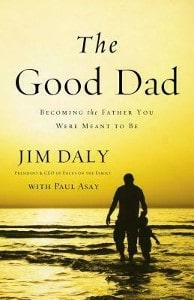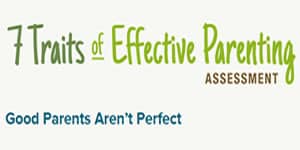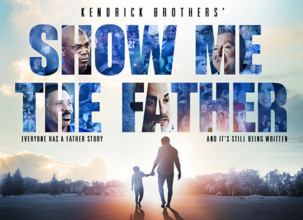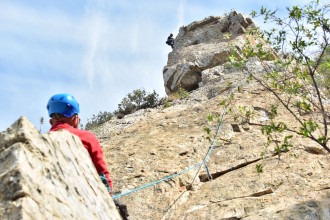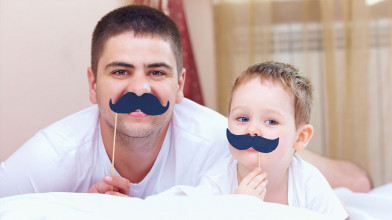Jim Daly: I’m Jim Daly with Focus on the Family. And right at the start of our broadcast, we want to pause to remember the 3000 American lives lost on September 11th, 2001, in the terrorist attacks at the World Trade Center, The Pentagon, and in the crash of United Flight 93 in Pennsylvania. And I’d like to quickly share a thought from New York Fire Department, Captain J. Jonas. He in 12 of his men rescued a woman from the North Twin Tower and then survived after the building collapsed.
Clip:
Captain J. Jonas: I think that most people were appreciating the small things in life right after September 11th. And, uh, I think we’ve gotten away from that. You know, uh, New York City became a small town overnight. Everybody was helping each other out and everything, and that’s kind of died down as everything’s kind of settled out, but, uh, you have no guarantees, you know, and, uh, you know, everything you have could be taken away at a moment’s notice. So you really savor what’s good in life… In your life and appreciate it. And, um, on September 11th, you know, uh, should be a day where you know, you take stock of your own family, you know, your own friends and honor the day. So every September 11th, remember the day, remember my friends that were killed trying to save other people’s lives.
It’s been 20 years since the terrorist attacks, and thankfully due to the hard work of our military and intelligence services, we’ve not had another 911 in those 20 years and we should be grateful for that. And we will never forget what happened, and my prayer and my hope is that it’ll never happen again.
End of Clip
John Fuller: Today on Focus on the Family, we’re going to share the hope that fathers can find when they seek God as the ultimate parenting role model, especially guys who didn’t have a good relationship with their own father. And we’ll start with a clip here, uh, from Kathi Lipp sharing about her own difficult relationship with her dad.
Clip:
Kathi Lipp: He was a broken man, but one of the things I really learned in this circumstance is that, you know, everybody in our lives has kind of a different toolbox, and they each get a little different set of tools. And one of my tools for my dad were, were missing or broken, but he did the best he could to build the life that he wanted for me, with the broken tools he had.
End of Clip
John: Your host is Focus president and author, Jim Daly, I’m John Fuller. And Jim it’s just you and me in the studio today.
Jim: And that’s right, John. And I think Kathi’s comment there is the perfect setup to our topic today. Many of us did grow up with fathers who might not have been given the best set of tools in their parenting toolbox and they could only do so much. But here’s the point, it is possible to be a good dad even if you didn’t have one. The Lord wants us to learn from our experiences so that he can teach us and bring good, even from less-than-ideal circumstances. To get started, I’d like to share a speech I gave recently as a quick way to share my testimony and the impact that four father figures had on my life. I had a biological dad, a stepdad, a foster dad, who all let me down. But there was a fourth man, a football coach, who was a believer, who really helped turn things around. And if you’re a single mom listening today, my heart goes out to you, please stay with us. Maybe this program will be something you’d like to share with the father of your child or with a grandparent who could step into that role and mentor.
John: Mm-hmm. That’s a good point, Jim. And, uh, let’s go ahead and hear your message given to the Home Educators Association of Virginia on today’s episode of Focus on the Family.
Jim: And for me, me being that kid, I mean, I had, you know, (laughs) the pages just ke- kept turning and the life just kept going down. I mean, I was born into a family, I was the fifth child, all my siblings are a year apart. Boom, boom, boom. And then six years after my closest sibling was born, I was born. I was the oops baby. Anybody the oops, baby? The accident. That’s how you’re introduced. “Oh, this is our accident.” It’s very, you know, good for your confidence. (laughs) Yes, I’m the accident child. But my mom and dad were struggling. My dad had a problem with alcohol. And when I was five, it was done. My dad got arrested, my mom was on the run. He was trying to get back with us, and my mom wanted to keep him away from the five kids and her.
Every year I was in a different elementary school. At some point, Compton was the longest elementary school I was attending, a year and a half, but just a lot of change in my life, constantly, constantly, constantly. And I remember my mom one day, she was not feeling well. She had remarried a guy, Hank, Hank, the tank. He was an ex-military drill Sergeant. I had nicknames for everybody. I was nine. He was Hank the tank. He would do a white glove test in our bedrooms. And if you didn’t pass, you had to do something. I didn’t hang up my jacket one time, he made me hang it up 500 times. But that was Hank. And they were married only for about a year and a half. And, uh, to Hank’s credit, Hank really loved my mom, but he hated the kids, he hated us.
And it showed, uh, when my mom died of cancer, we came back from the funeral and Hank had packed all of his bags, put our stuff in little boxes in the living room and sold all of our furniture. You know what I mean by that. That wasn’t Hanks’ furniture, that was our furniture. But we came home to an empty house after the funeral. And, uh, Hank came out of the bedroom and said, “I can’t take this pressure, I’m leaving.” I’m like nine going, “I can’t take it either. What do I do?” “Oh, you get to go to foster care.” And the day before my mom died, the Hope family led her to the Lord, they were our neighbors. I’m not kidding. Is this God or what? H-O-P-E, Hopes. The Hopes came and said to my mom, Jan, “You, you need to know Jesus Christ as your Lord and savior.” They’d been friends and neighbors for a couple of years, but they had the courage to go and, and mention this to her.
And my mom knew the golden rule. It was of that era, where she taught us the right stuff, she had a great sense of humor, all those things. And she had a lot of great character, but she didn’t have a relationship with Christ. And so that changed that day. And I think it was the relationship with my… Between the Lord and my mom. I can’t imagine my mom’s prayers in those last 24 hours of her life with a child 19, and then 17, 16, 15, and nine. What she must’ve been praying, knowing she was gonna die and not knowing what, perhaps knowledgeable, but not knowing exactly what Hank would do.
And so we went into foster care, my, my brother, Dave and Dee and I. And the name of this family was the Reil family. I’m not joking. The Reils, (laughs) R-E-I-L, the Reils. I remember, I didn’t really know the Lord. I had heard my mom accepted Christ, but nobody has spent time telling me what that meant at nine years old. Isn’t that sad? And I can just remember going to this family and thinking, “This is the Reil family?” They had four sons, the 18-year-old son, Dave, that you know, married his 42-year-old cousin, Maggie. Come on. It may be in the morning, but did you hear what I just said? You guys, come on. He was 18, she was 42. Yeah, thank you. Thank you very much. (laughs)
And uh, Paul knew my brother, Dave, and then there was, uh, Gary who died of AIDS. He was 14 at that time, but died of AIDS, probably seven years later. And then Marcie was eight years old. And Marcie was great. He is now a state trooper in Utah. He used to steal my toys. (laughs) This is a true story. You know, and my mom was so good she always addressed… It taught us how to address adults. So I would go to Mrs. Reil and I’d say, yeah, I’m nine years old, “Mrs. Reil, Marcie took my foreheadless GI Joe’s, there in his drawer. I mean, I was asking permission to resteal my GI Joe’s. And she looked at me and she said, “You know, Jimmy, you’re just not fitting in with our family. Marcie would never steal anything.” “Well, you don’t know your son.” (laughs)
And I just remember, I remember when she said that I was thinking in a nine-year-old way, I was thinking, that’s a good thing I’m not fitting in with your family. (laughs) I mean, I’m no genius, but thank you for the compliment. (laughs) It’s so sad I know. And at least the Reils did open their home up to us, and I’m grateful for that. But the point of that really is where are you learning who you are? And at a very early age, I had to figure out a couple of things. One, adults had a hard time telling the truth. That was my world. I mean, it was crazy. Six months into living with the Reil family, the social worker came out for first case visit. She’s a very wise older woman, probably 24. (laughs) You know those social workers? Yeah. They’re like 24 just out of college, and gang ho for a couple of years, till we foster kids beat the snot out of them. (laughs)
But she was sitting across the table from me, it was a kind of a puppy crush, my first one, she was very cute. And I fell in love with my social worker. And my brother Dave was sitting at the table and she looked at me and she said, “Jimmy, we have a problem.” And I said, “Yes, we do. Thank you.” The first adult that has recognized, even though she’s only 24. But she looked at me and said, “No, Mr. Reil said you tried to kill him.” “Thank you.” That was exactly my response. (laughs) And there’s one or two of you going, “Well, did you?” No, no. (laughs) I was like shocked as the social worker was. In fact, I remember I’m nine years old and I said, “How, how did I try to kill him?” (laughs) That was probably what tipped her off, right?
And she looked at me with a little rice smile. And I’m telling you what, a child can pick up on drops of affection, of affirmation. That little smile she had in her face, as she was talking to me, told me everything I needed to know that she did not believe him, she believed me. And she smiled and she said, “Well, he said, you tried to push him off a cliff.” (laughs) And in my little voice, I said, ” But we live in Morongo valley.” (laughs) That is an absolute true story, verbatim. “But we live in Morongo valley.” And she said, “Yeah, I don’t know what we’re going to do, but there’s two options. You can hunker down here at the Reils.” I didn’t know what that word meant, it’s first time I had heard it. “Or we can split you into different foster households.”
And I remember she’s looking at me, my brother who’s 18 is sitting there, he’s not saying a word. So she’s looking at me, “What do you want to do?” I said, “Well, I think hunkering down here would be better.” So we’d to live there another six months with this guy thinking I was trying to kill him. (laughs) It’s a little odd. Then my, my dad reappeared, my bio dad. And I hung on his leg the whole time while he visited us at the Reils. I mean, at the end of the day, he said, “Would you like to come and live with me?” “Yes.” But if you came from an alcoholic home, it was like, dad, dad, which dad would I get? So my sister and I moved in with him for about a year. And he was still struggling drinking, better, but still struggling.
I remember when my sister turned 18 one year later, and we’d lived there a year and a half or so at the end of the Reils, I was gonna be coming up on 12 years old, so I’m 11 and a half. And I remember the family, my siblings didn’t think I should live with my dad by myself. So they said, “You know, we think you should move out, move in with Dave,” my brother who was now 19 or 20, married to his pregnant 16-year-old girlfriend. I remember when they got married, I looked at her and said, “Do I call you mom? (laughs) I mean, you’re closer to my age than my brother’s age,” but (laughs) this is crazy, isn’t it? God does get into this story, hang on. (laughs)
And if you notice the Bible’s full of messy people, have you noticed? I had to tell my father, ’cause the sibling said, “He will not hear it from us, you have to tell him.” It’s only like 11 and a half. Do you get a theme here? Figure out where you’re gonna live, tell your dad you don’t want to live with them anymore. I remember at the family conference, looking at my father and saying, “You know, dad, I just don’t think I should live with you anymore after Dee has moved out. And he looked at me and said, “Why?” Nobody had prepped me for that question. So I’m sitting there for what felt like eternity thinking, what, what do I say to my father? And I said, “Well, because of the way you treated mom.” And to his credit, he stood up, he came over and hugged me and he said, “I love you, but I wasn’t a good husband and I’m not a good father.”
In many ways, that’s character, recognizing your failure. And I hugged him and he walked out and he died four months later. I never saw him after that encounter. He died frozen to death in a building, an abandoned building, drunk. I usually don’t share that part of the story. The amazing thing is that in the last two weeks of his life, he volunteered at a church. So it may be odd, I may end up seeing him in heaven. I don’t know. Wouldn’t it be amazing? So you’re going, “Okay, what happens next a little orphan boy?” Well, then you just have to say, Lord, you’re in control, right? I’m not yet acquainted with the Lord and savior. I’ve heard about him. Nobody’s spent time telling me about him yet.
At 15 a football coach I had, Paul Mauro, who just died, I did his funeral and he was awesome. He was a believer. He and his wife, Joyce. And they invited me and paid the $500 for me to go to the fellowship of Christian Athletes Camp in Point Loma. And this guy, he was the quarterback of the San Diego Chargers at the time, the speaker that was there, Jeff, I think his first name was Jeff I can’t remember his last name. And he came up to the podium, there’s only 40 of us guys, play football all day, and then listen to a speaker, and laugh and giggle at him because he’s a Christian. “Oh, that guy what’s he know? (laughs) He thinks there’s a God.”
And this guy got up there and said, “Has your father lets you down? Has your stepfather let you down?” I thought the next thing he was going to say is has Mr. Reil let you down, (laughs) right? You just go, wow, this guy’s got my dossier. And he said, “I’ll, I’ll introduce you to someone who will never let you down, Jesus Christ. He’ll be a father to you, who especially if you don’t have a father, he’ll be a father to the fatherless.” Wow. I’ve been balling. I went up there as a 15-year-old and accepted Jesus as my savior. And I’m telling you what, and I guess this is the point, the clear point, character counts and we learn character in the valleys. You learn, learn who you are. And I think for all of us in the room, especially if you’re being raised in a good home, a home of love, and kindness, and joy and peace, you can take those things for granted and forget or not realize, because you’re on the mountaintop what the valley is. And I, I would say run to a valley to learn who you are.
John: Well, this is Focus on the Family. That of course, uh, Focus president, Jim Daly. And Jim, I so appreciate your last point there, we really do learn more about ourselves and about God when we go through difficult times.
Jim: It’s true, John. And that illustrates why I’m not bitter about the experiences I had as a boy. I could have been, but when I became a Christian at age 15, I found God is my heavenly father, someone who I could always count on. And I always had a great role model in coach Paul Mauro, he and his wife would have us football players over for dinner and I would just watch how he treated her, uh, always kind, always respectful. And he was my fourth father figure and a great one. In fact, he and Joyce actually offered to adopt me. And it was such difficult decision. I was amazed that he asked, he cared that much about me. And I would say, “Why me? Why is he noticing like that? What does he see in me?” And I’ll tell you, I was tempted to say yes, but I was living with my brother at the time and I didn’t want to hurt his feelings by doing that. But that offer of adoption is a very close parallel to what our heavenly father does for us. He adopts us into his family of believers and he mentors us. And then through the years, uh, the Lord was my role model of that perfect father. And he gave me the empathy, uh, to be able to forgive my three imperfect dads, which is critical. We can’t allow ourselves to be trapped in unforgiveness.
John: Yeah. And I think we’ve talked about this before. And uh, I think the quote is attributed to St. Augustine, “Unforgiveness is like drinking poison and hoping the other person dies. It really does only hurt you.”
Jim: It’s so true. And you know, I forgave my dad because I, I know he did love me. He was in the grip of alcoholism though and that consumed him. I forgave Mr. Reil because I feel sorry for him. He had mental health issues and I don’t know all that he was struggling with, but he wasn’t in a good place. And I still struggle to forgive Hank, my stepdad, who, uh, was a man that simply walked out on five grieving kids, the day of their mom’s funeral, who does that? And every time Hank comes to my mind, I asked the Lord to help me continue, uh, to deepen that forgiveness for him. I’m sure many of you struggle with unforgiveness. And I want to make sure that you know we’re here to help you. Uh, just call us and we will make sure a counselor gets back to you.
John: Yeah, requests to call back from one of our counselors when you get in touch with us, our number is 800-A-FAMILY, 800-232-6459, and we’ll also have a link online.
Jim: You know, John, uh, the last time we aired my testimony, we received a note from a police officer named Bill. He said, “I heard your story of your troubled childhood. I’ve been in law enforcement for four decades and have cultivated an image as a tough guy. I can hear just about anything and not show emotion. Hearing of the deaths of your mother and father had me crying like a baby. I’m so glad that God has worked in your life the way he has.” Uh, man that is touching to me that it touched him in that way.
John: Yeah, that is remarkable. And I’m so glad that Bill shared that comment with us. It, it really does illustrate the fact that children need their parents. And it strikes a chord in us when that primary relationship gets broken. And, uh, Jim in your book, The Good Dad, you had some great research about the importance of fathers.
Jim: Uh, let me share a few statistics on the downside, what happens when children live without a father? And then I want to share some really encouraging data on how fathers provide great benefits to their families and even their neighborhoods. In every scientific measurement of child well-being around the globe, the research consistently reveals that fatherlessness is profoundly harmful to children and society. 25% of households in America are fatherless. 85% of all youth in prison come from fatherless homes. 90% of all homeless and runaway children come from fatherless homes. And finally children from fatherless homes are four times more likely to live in poverty.
John: Well, that’s a pretty, um, startling and depressing picture, Jim.
Jim: Well, it’s true. But now for the positive, Dr. Brad Wilcox of the National Marriage Project says that, “The best research still shows that for all races, kids who live with a married mother and father are nearly guaranteed to never live in poverty or spend time in jail.” Man, that’s incredible. They will graduate from high school and successfully enter the workforce, and they are dramatically more likely to attend college. And fathers are not just impacting their own families. A Harvard study shows that having fathers in a neighborhood makes a big difference for children’s school success and employment rates. This is particularly true for young black males. The study concluded, “More black fathers in the village translates into better economic equality for black men. Fathers are so powerful, they impact children beyond their own homes.”
John: Yeah, I think that is so true. And, um, I certainly saw that, uh, as our kids were growing up, we had some children in the neighborhood who didn’t have a dad around. They just glommed onto us. They, they hung around. They watched me very closely interacting with my kids and with them. They…. It seems like they just knew intuitively, um, that there was, um, some security there.
Jim: Yeah, that’s right. Fathers provide the sense of strength and protection. Um, and that takes nothing away from moms. I mean, that’s the irony. There’s also exciting new research showing that fathers make a big impact in the transmission of their faith to the next generation. Dr. Verne Bankston, of the University of Southern California says that, “56% of fathers and children who have close relationships also share the same level of religious participation. If that father child relationship is weak, the faith aspect drops by 20%.” And this studies showed that father closeness mattered more than mother closeness. Isn’t that amazing?
John: I, I would not have expected that. And, uh, as we kind of turned a corner, how about some practical ideas for dads.
Jim: Well, parenting really young kids can be a challenge, but it’s important to get down on their level, literally, get on the floor, look at them eye, see what they’re doing. Moms instinctively know how to play with their kids, dads bond through doing something. And when little ones can’t do something with us, we feel a little lost. Sometimes we need to build Legos with our boys or sip imaginary tea with the daughters. We can learn our children’s love languages. I remember reading that book and I asked Troy, he was probably four, “What’s your love language?” And I’d read him the list, and he goes, “Physical touch.” He knew it just like that.
John: Wow.
Jim: And that connected us. We still refer to that. So we can learn our children’s love languages, learning styles, and personalities when we spend time with them. And that helps future communication go more smoothly. Let me also mention promises, because there were so many broken promises in my life. Be careful guys what you promise to do. You need to keep those promises. When I was seven, my dad promised to bring me a baseball mitt for my birthday, and he just never showed up. The difficulty in that day was my friend Ricky was with me and walking into the curb, you know, back and forth. I remember at the end of the day, he just hit me in the shoulder and said, “I’m sure he’ll bring it to you.” And it just never happened, he never came well.
John: Well, I’m so sorry for that story, Jim. I… It really just grabs me every time you share that. And it does reflect how important it is to the child, for us as dads to keep those promises. It doesn’t seem like it’s a big deal, or it seems like it’s less important but not to the child.
Jim: Well, I think some kids, their temperament, they hang on every promise. And when you kill that promise, it kills a little part of their heart. Uh, kids are like that. There are no perfect parents, uh, except for our father in heaven. He’s always loving and he always gives us his best. And thank God he keeps his promises, right?
John: Yes, every time.
Jim: Um, he maintains firm expectations, of course, while being ready to forgive when we ask. God is that perfect parent and yet his children still disappoint him. God’s relationship with us is the epitome of striving to be a good dad. Um, let’s follow his example. If today’s program has whetted your appetite to become a better father, uh, let me encourage you to go see a new movie from the Kendrick brothers who have produced great faith-based films like Overcomer and Fireproof. Their documentary called Show Me The Father opens tonight in theaters across North America. The film explores five powerful true stories about earthly fathers, including my testimony, and how God really is the perfect father. And I got involved with the film because I know that God can be a father to men longing for his love and for the sake of the next generation. So get out and watch Show Me The Father. I know you’re going to be blessed by it.
John: Yeah, you’ll find it to be really encouraging and inspiring. It’s great.
Jim: And you know, John, we talked to a lot of really great godly men here in our studio. And I think it was Kevin Leman, who said that men tend to be loners. Uh, we’re just not wired like women are. We can go tinker in our garage or on the golf course and avoid talking about our feelings or our relationships, uh, but we don’t hesitate to ask for help when we need it like a plumber or electrician, someone with more skills than we have. We need to allow ourselves to ask for help to do a better job fathering our children. So please let us at Focus on the Family help you.
John: Yeah, we have so many great resources. And, uh, we also have a team of Christian counselors who would count it a privilege to spend some time on the phone with you, and hear you out, and give you some wise biblical advice.
Jim: And don’t worry about feeling embarrassed, we’ve heard it all. And, uh, for those of you who can help support us financially to be that help in a person’s moment of need, would you consider supporting Focus? Uh, if you can make a donation of any amount, I’d like to send you my book, The Good Dad as our way of saying thank you.
John: And just give us a call, our number is 800, the letter A and the word FAMILY, 800-232-6459, or you can donate online and request Jim’s book at focusonthefamily.com/broadcast. On behalf of Jim Daly and the entire team here, thanks for joining us today for Focus on the Family. I’m John Fuller, hoping you have a great weekend with your family and your church family as well. Don’t forget to see the film Show Me The Father if you can this weekend, and then be back with us on Monday, as we, once again, help you and your family thrive in Christ.










